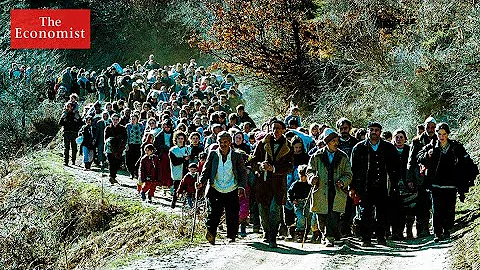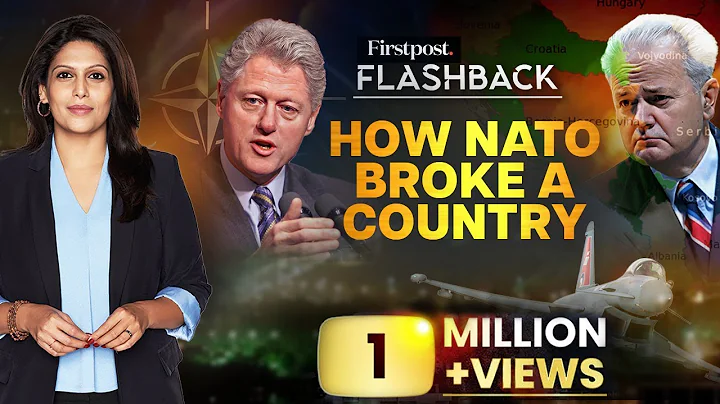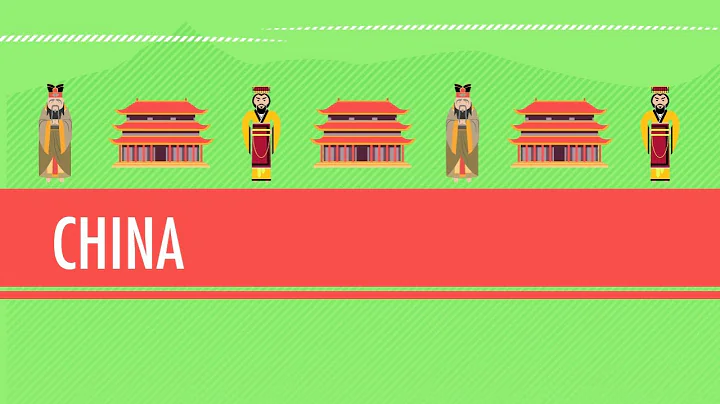"We don't need to join NATO because we have our own army to protect our territory and airspace!"
At an election rally in March 2022, Serbian President Vucic said so.
In addition, regarding the NATO bombing of Yugoslavia in 1999, Vucic strongly condemned: It was an "invasion" that the Serbian people "dare not forget."
Regarding the Russia-Ukraine war that is in the eye of the storm, Vucic made it clear that he cannot choose sides - Serbia strictly prohibits any citizen from participating in it, and no matter which side he joins, he will be severely punished.
Serbia has a unique geographical location and is known as the "crossroads of Europe" and the "link connecting the East and the West." Its every move affects the hearts of Eastern and Western civilizations.
So, how can "militarily neutral" Serbia survive? How did a powerful country in the past fall into this situation? How cruel is the "invasion" in Vucic's words?

(Serbian location)
1. "We do not need to join NATO": NATO's eastward expansion and peace partners
With the end of the Cold War between the two major camps of the East and the West, the Warsaw Pact disbanded, and those who once fought against the Warsaw Pact NATO became the dominant power, and the countries in the Soviet bloc experienced a "power vacuum" and a "security vacuum", and their status plummeted.

(The disintegration of the Soviet Union)
Central and Eastern Europe Countries are extremely weak and do not have the ability to resist military threats and external invasions on their own.
At that time, Russia was like "a mud Buddha crossing the river-it could not protect itself." Despite this, the countries in Central and Eastern Europe were still worried that Russia would repeat its conservative and strong path to hegemony.
At the same time, the prestige of European Community dropped to a freezing point during the Yugoslav crisis, so the countries in Central and Eastern Europe wanted to find a new way out.
In their opinion, the most dangerous place is the safest place, so they began to actively apply to join NATO, hoping that NATO would become an umbrella for military security.
At the same time, the United States continues to encourage Russia and the EU to check and balance each other, reaping the benefits of the fisherman - only when Russia and the EU are fighting, can the United States use NATO as a military platform to have a voice in Europe and display its own hegemony .
Therefore, NATO’s eastward expansion is an inevitable result of the change in NATO’s pattern and positioning after the end of the Cold War.
After the disintegration of Yugoslavia, all countries except Serbia joined NATO, and 13 countries from the former Soviet Union and Eastern Europe were admitted in four rounds of expansion.
As for NATO, the joining of these countries has only increased the size of NATO, but it has not increased much military strength and collective defense capabilities. It has only added security risks to NATO in military conflicts with Russia.

(NATO)
NATO thought: Since the conflict with Russia is inevitable, it will go all the way to the dark side and gnaw off the "hard bone" of Serbia.
However, the people of Serbia did not agree.
According to a poll conducted by the Center for Free Elections and Democracy in Belgrade, the Serbian people are very resistant to joining NATO, and the Serbian government has also made it clear that it will not join NATO.
Interestingly, in 2020, 10 Serbian NGOs "jumped up and down" on joining NATO.
They presented to the public an initiative for Serbia’s new foreign policy, calling for “the full strengthening of Serbia’s cooperation and partnership with NATO.”
These NGOs even believe that the cooperative relationship between Serbia and NATO is improving every year, so the anti-NATO campaign in the media must be stopped.
What is intriguing is that the non-governmental organizations that propose these foreign policy initiatives are all funded by NATO member states.
NATO has also repeatedly stated that the current cooperation between Serbia and NATO is good.
It can be seen that NATO's "unrequited love" for Serbia is just wishful thinking.

(NATO soldiers)
Moreover, as a "small country" sandwiched between NATO and Russia, Serbia must be careful at every step. "People have to bow their heads under the eaves."
On the issue of Kosovo , Russia is a staunch supporter of Serbia. It does not recognize Kosovo’s independent status and supports Serbia’s sovereignty over Kosovo.
If Serbia joins NATO, Serbia will lose the support of Russia, and Russia will also lose its allies in the Balkans . Therefore, Russia also opposes Serbia's joining NATO.
As Serbia, sandwiched between the EU and Russia, it has firmly acted as a "buffer zone" and has always adhered to the principle of non-alignment.
In fact, under Vucic's management, Serbia has won the favor of both Russia and NATO.
When NATO was formulating its eastward expansion plan, it formulated the "Partnership for Peace Plan" in order to appease Russia's nervousness in dealing with NATO's eastward expansion and its strong opposition.
In fact, Russia has no practical means to prevent NATO's eastward expansion. Instead, it assesses the situation and joins the plan on the condition that NATO provides it with special partner status.

(Serbian elite detachment walks through Red Square)
At the same time, Serbia is very interested in cooperation in defense, arms control, military exercises and other areas stipulated in the plan.
In 2006, the NATO Riga Summit invited Serbia to join the Partnership for Peace plan.
Five years later, Serbia approved the Individual Partnership Action Plan and Serbia has been cooperating with NATO within this framework ever since.
In its cooperation with NATO, the Serbian government not only emphasizes actively establishing a peace partnership, but also adheres to the principle of military neutrality.
As relations between the two sides continue to deepen, NATO's attitude towards Serbia has become friendly, and it has even proposed respecting Serbia's military neutrality policy and promoting Serbia's accession to the EU.
The way of survival of a small country is vividly demonstrated by Serbia.
So, why has Serbia become the target of competition between Eastern and Western powers?
2. From the "Heart of Asia and Europe" to the "Firewall" - Serbia's Choice
According to the classic geopolitical theory, the Balkan Peninsula is the "heartland" of the Eurasian plate. Whoever rules the Balkans will rule the world.
Serbia is located in the hinterland of the Balkan Peninsula and is also one of the key passes running through the Eurasian water system. It has great significance as a dual sea and land hub.

(Balkan Peninsula)
The pursuit of geostrategic interests by the great powers of Asia and Europe has kept the Central and Eastern European region in a state of competition for a long time.
Serbia is located in the Balkan Peninsula and is greatly affected by geopolitics. It is the junction line of Asia and Europe and the forefront of the conflict between Eastern and Western civilizations.
As a European country, Serbia has always been an alternative to the West, and slightly unfamiliar to the East.
Serbia is located on the border between two civilizations, where different ethnic groups and religions are entangled. Serbia once became the country with the greatest comprehensive strength in Europe, and was once reduced to a slave of imperial rule.
During World War II, Yugoslavia's economic losses were equivalent to the total output value of the two decades before the war. Huge material losses reduced Yugoslavia to a poor country in Europe after the war.
The years of war have severely damaged the Serbian nation. The former great power has collapsed, and its comprehensive national strength has plummeted. This requires Serbia to boost its economy and compete with many Central and Eastern European countries with similar strengths for strategic survival space.
After the end of World War II, Yugoslavia implemented the Five-Year Plan. All walks of life in the country gradually returned to pre-war levels and entered the fast lane of economic development.

(Yugoslavia)
By the end of the 1970s, Yugoslavia had developed into a moderately developed country. Its national income ranked among the best among third world countries, with an average annual GDP growth rate of more than 6%.
The good times did not last long. After the death of "heroic leader" Tito, Yugoslavia was leaderless, Serbian workers were seriously divided, and the entire country's economy fell into a low ebb.
The Kosovo War dealt a fatal blow to the Serbian economy, causing the country's overall economic level to be far lower than the European average.

(Serbian Army)
In 2020, the European Union requested Serbia to ban all military exercises on the grounds of the EU accession process.
With the eastward expansion of the EU and NATO, many Central and Eastern European countries have joined, and Serbia does not have a strong backing in the region.
Tito's political strategy during the Cold War has a lot of inspiration for the current Serbian government. It wanders between the two superpowers and uses the non-alignment policy to gain space for the country.

(Vucic)
Although Vucic said "it is the responsibility to forgive," the Serbian people do not dare to forget the Kosovo war that completely defeated the Yugoslav Federation.
That was a complete "invasion"! The problem in Kosovo needs to be solved, but only by the Serbs themselves.
3. The "aggression" that "dare not forget"
On March 24, 1999, NATO announced an air strike against the Federal Republic of Yugoslavia , and the Kosovo War broke out.

(Kosovo War)
After 78 days of bombing, Serbian leaders signed an agreement requiring Serbia to quickly withdraw its troops from Kosovo and replace them with deployment of forces led by powerful Western forces, Security Council resolution, The transitional government, chaired by the United Nations , requested NATO troops to keep the peace.
Kosovo's "Parliament" passed the Declaration of "Independence", declaring its independence from Serbia and becoming a new independent country.
After the war, NATO Secretary-General Javier Solana summarized the "reason" for NATO's military threat to Yugoslavia, which was that the report submitted by United Nations Secretary-General Annan stated that there was indeed a "humanitarian disaster" in Kosovo.
But, is this really the case?
At that time, some knowledgeable people had already understood the insidious nature of NATO. The "humanitarian disaster" was fabricated out of thin air, and the bombing of Yugoslavia was a war of "aggression"!
Even a British journalist publicly accused NATO of being "willful, arbitrary and stubborn" in bombing Yugoslavia, which was on the verge of a "historic mistake".
When carrying out attacks on Yugoslavia, NATO has always claimed that NATO has a moral responsibility to stop the ongoing violence in Kosovo.

(Popular Protests)
But in fact, since the war began, NATO officials have completely controlled the airwaves, and the world public has been faced with television images of precise strikes by "smart bombs" and government statements that make people believe beyond doubt.
The government and the media have tried their best to exaggerate the invincibility of NATO's military power and convince the public that such precise strikes will not harm civilians, because this will help change the attitude of public opinion.
However, the deception of this propaganda was quickly exposed.
Reuters A report from Belgrade described a 73-room hotel in a town that was destroyed by a bomb; Reuters also reported that the US air strikes on Yugoslavia used laser guidance for the first time bombs, but within a few weeks switched to B-52 bombers carrying conventional bombs.
This shows that there will be more and more indiscriminate bombing! In the end, the Chinese Embassy in Yugoslavia was viciously bombed by the US military, and three fellow journalists died tragically in a foreign country.
In order to increase its lethality, NATO used a large number of cluster bombs , depleted uranium bombs and graphite bombs that are banned by international law, causing many casualties, more than one million people becoming refugees, and economic losses of more than 100 million US dollars.

(cluster bombs)
The radioactive radiation of depleted uranium bombs threatened the health and lives of hundreds of thousands of people. The consequences of this war not only affected the entire Yugoslav Union, but also affected many surrounding neighboring countries.
NATO countries claim that their indiscriminate bombing of Yugoslavia is to prevent the occurrence of "humanitarian disasters" and prevent the displacement of large numbers of people due to Yugoslavia's brutality.
What is ridiculous is that it was NATO air strikes that destroyed the homes of local residents in Kosovo, forcing them to become refugees and starved of food.
A war correspondent once walked in Machewan, Serbia. The experience of that long and bloody mile shocked him greatly.
He wrote in the report: "The mile I walked on Sunday was long and bloody. Dante's scenes of purgatory filled with hellfire continued to appear. Thick smoke drifted between cities, and my skin became sweaty. It was on fire at the touch. The injured were rolling on the ground in pain, looking like monsters. "
The tragedy in Serbia will only be more tragic than the reporter's description. However, this is just a prelude.
As the bombing campaign continued to intensify, a morally minded reporter once climbed to a high ground in Serbia and lived with the Serbian army.

However, this experience gave him real fear. When he was trying to dig a hole in the ground to hide and rest, the shovel dug out an arm.
He wrote: "On the high ground, the living are as stiff as the dead. However, when NATO enemy planes attack, the living will resolutely fire into the air; the wounded will cover those who were blown to the ground. Lin squirmed; only the dead remained motionless. "
As a witness to the cruelty of the war, a reporter from Xinhua News Agency once took this photo: a father holding his child who was severely burned . A kind of napalm bomb was injured, and almost no part of the skin on the body was intact.
The war caused innocent civilians to suffer, and ancient Belgrade was devastated.
This was the first time for many war reporters to see such a devastating bomb dropped on such a large city, and the entire city was submerged in a sea of fire. During the
bombing, the eight bridges on the Danube became NATO targets, and locals had to take small boats to cross the river to do business and visit relatives and friends.

(Danube River)
Sixty days after the war, a French war correspondent published a report: "Officials said two bombs hit the shelter.
The roof of the building was reinforced with 15-foot-long steel bars, and the bombs Cut in half like butter.
Husbands and fathers of the victims waited anxiously for the bodies to be removed from the shelter. By noon, 200 bodies had been removed and an estimated 300 people were still buried in the shelter. There are cries of relatives of the victims waiting for news of their loved ones.
What kind of town is this? "Yes, all the scenes are what NATO has said. "Just war"!
4. NATO’s “Just War”
Fundamentally speaking, the Kosovo issue is related to NATO’s strategic interests, so NATO, led by the United States, used the excuse of violating human rights to intervene forcefully.
Among them, the most ironic thing is a speech called "International Social Norms".
British Prime Minister Blair proposed the principle of "human rights above sovereignty", juxtaposing the fundamental interests of the country with the common values of democracy and human rights in Western countries, equating Western social values with the values of all mankind, and seeking for maximize benefits.
The debate between human rights and sovereignty continues. We do not deny the importance of human rights.

However, human rights are the rights of individual citizens, while sovereignty is the highest power of the country. It is a collective human right and represents the interests of all people in a country. It is the premise and guarantee for citizens of all countries to enjoy their basic rights.
National sovereignty is sacred and inviolable, but when the people of a country that has lost its sovereignty are persecuted, what are the human rights?
The " Charter of the United Nations " clearly stipulates that "all member states are sovereign equal" and "in international relations, threats or force shall not be used to infringe upon the territorial integrity or political independence of any member state or country.""
These principles have become the basic norms of modern international relations recognized by all countries in the world, and are of great significance to maintaining international order and world peace.
Human rights and sovereignty are consistent, and there is no distinction between them.
Western countries advocate that "human rights are higher than "Sovereignty" is just an excuse and a pretext to achieve its hegemony.
"Human rights without borders" violates the international legal norms of the United Nations Charter and is a tool to nakedly promote hegemonism and power politics.
The Kosovo War It can be said that it is the concrete practice of NATO's new strategy. It violates the sovereignty of Yugoslavia and tramples on the human rights of the people of Yugoslavia.
The conflict in Kosovo and the so-called "humanitarian disaster" cannot be the reason for NATO to bomb Yugoslavia. The United States and other countries. This behavior ignores the United Nations Charter and the norms of international law, bypasses the United Nations Security Council , blatantly uses force to interfere in the internal affairs of a sovereign country regardless of the opposition of other countries, and bypasses the United Nations to launch an attack on another sovereign country. This can only be regarded as hegemonism.
At the same time, in the traditional just war theory, belligerent justice includes the principles of moderation and distinction

(United Nations Security Council)
However, when we look back at the Kosovo War, we can find that the so-called belligerent justice principle did not affect NATO in the war.
NATO is still pursuing the end by any means, which is not in line with the humanitarian nature of the war it claims.
In NATO's view, the Yugoslavia led by Milosevic . It is still a country led by the former Communist Party, and NATO is hostile to Yugoslavia.
Although the former Yugoslavia has been disintegrated, the strength of the new Yugoslavia is still at the forefront in the Balkans.
At the same time, NATO believes that Yugoslavia has close relations with Russia. It is also the only country in Central and Eastern Europe that has not requested to join NATO. These are things that it cannot tolerate in completing its entire eastward expansion strategy and controlling Eastern Europe.
Therefore, the angry NATO completed a real "invasion"
Vucic Shen! Deeply remembering the humiliating past, wandering among major powers, and constantly developing relations with China to maintain Serbia’s peace
5. Sino-Serbian relations-Serbia’s way to survive
Historically, Serbia. It is the first European country to provide visa-free access to China.

Regarding the core interest of maintaining territorial integrity, Serbia and China have a very clear attitude towards Kosovo. Serbia also firmly supports the one-China policy and firmly opposes it. Any form of separatist behavior.
Vucic sent a letter to China, expressing Serbia's firm support for China's territorial integrity and condemning any attempt to undermine China's unity.
China and Serbia have also carried out international police cooperation. China has dispatched police officers to Belgrade to solve many practical problems faced by tourists in Serbia and local overseas Chinese, expanding the breadth and influence of my country's international cooperation.

(The streets of Belgrade)
In addition, Hebei Iron and Steel Group invested 46 million euros to acquire 98% of the assets of the Smederevo Steel Plant;
China Hydropower Construction Group signed a contract with the Serbian government and a company Azerbaijan to build the Belgrade Ring Expressway Memorandum of Understanding on Highways;
Huawei Company donated innovation laboratories to the Ministry of Education, Science and Technological Development of Serbia and University of Belgrade , etc.
In a survey on the influence of major powers, Serbian citizens believe that the influence of China and Russia is positive on Serbia, while the influence of the European Union and the United States is relatively negative.
This has explained most of the problems.

(Vucic)
Reference:
"Vucic gives a clear warning!" "Global Network
"Vucic stated: We do not need to join NATO, and we dare not forget 1999..." Global Network
"On the evolution of Western humanitarian intervention models after the Cold War - Enlightenment from the Kosovo War to the Libyan War" Zhang Lei, School of International Law, East China University of Political Science and Law
"Global Connection | Vucic: Serbia is willing to continue to expand cooperation with Chinese enterprises" Xinhua News Agency





















